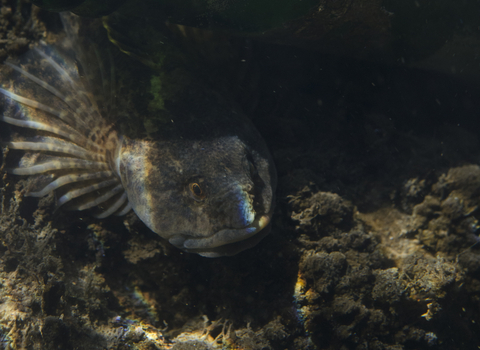
Bullhead ©Jack Perks
Bullhead
Living up to its name, the bullhead has a characteristically large, flattened head and a tapering body. Look out for it in fast-flowing, stony rivers and streams.
Scientific name
Cottus gobioWhen to see
January to DecemberSpecies information
Category
Statistics
Length: 8-12cmWeight: 6-12g
Average Lifespan: 3-4 years
Common.
